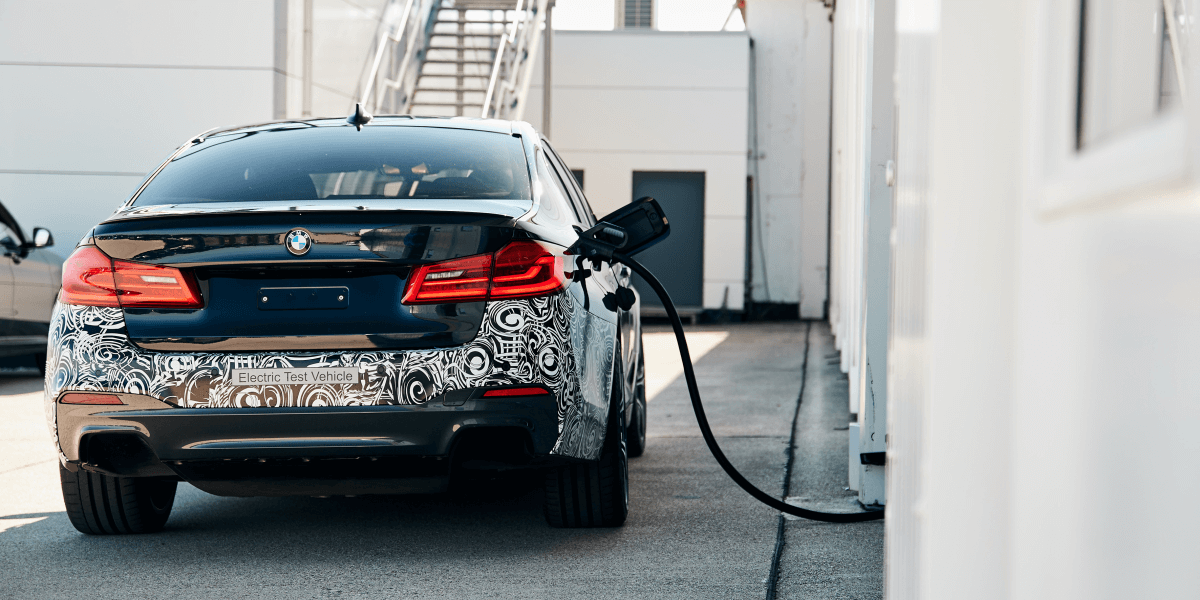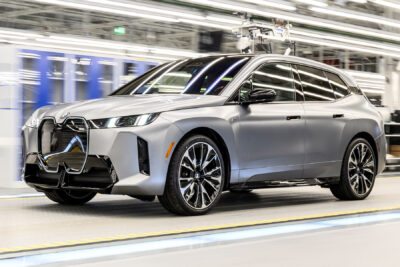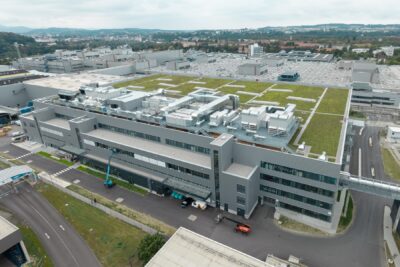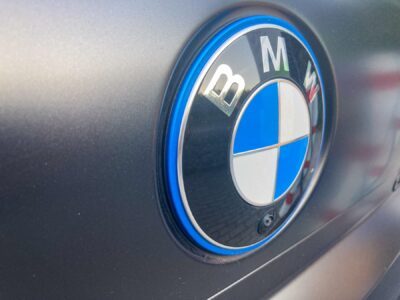BMW announces fully-electric versions of the 5er and X1
Following the iNEXT, the i4 and the 7 Series, BMW is also planning purely electrically powered variants for the 5 Series and the X1. The manufacturer has now officially announced the new models along with its sustainability goals.
In the next ten years, BMW is aiming to have a total of more than seven million electrified vehicles on the roads, with around two-thirds of these with fully electric drive, according to the German carmaker’s sustainability goals announcement.
By the end of 2021, BMW intends to have five emission-free vehicles in its product range: the i3, the Mini Cooper SE, the iX3, the i4 and the series version of the iNext. A fully electric version of the 7-series had already been confirmed by the Munich-based company when the annual figures were announced in March.
The German luxury carmaker says that electrification will continue across the model range in addition to the BMW 7 Series. What is being touted as the “Power of Choice” means that, in the future, the high-volume BMW X1 and BMW 5 Series will also be available with all four drive variants – fully electric, plug-in hybrid, diesel and gasoline with 48-volt technology.
Rumours of an electric 5 Series had been circulating for some time, but so far, the car manufacturer has not made any confirmation on this front. With the “Power BEV” BMW revealed a test vehicle in June last year, which was supposed to sound out what is “technically feasible”, as the company puts it. The vehicle had three electric motors with a system output of 530 kW of the fifth electric drive generation. The Power BEV test vehicle was based on a current BMW 5 Series production vehicle.
Although the company has not yet released any technical details or given a launch date for the electric 5-Series and X1 models, BMW is generally expected to use much of the same setup used in the recently unveiled iX3 that makes use of a rear-mounted electric motor and an 80 kWh battery pack. Based on the performance data of the iX3, BMW does not seem to especially interested in strong four-wheel-drive electric cars with two engines at present.
“The best vehicles in the world are sustainable,” says BMW CEO Oliver Zipse. “That is why premium and sustainability will be even more inextricably linked in the future.” So far, BMW has not yet launched a new BEV on the market besides the well-known i3 and the Mini Cooper SE, which is related through its drive technology, but the iX3 is due to start soon. Instead, the Munich-based company has recently been focusing heavily on expanding its PHEV range. With the current way of calculating in EU legislation on CO2 output, the strategy with the partially electric vehicles seems to be working: According to BMW, they see themselves “fully on track” to meet the CO2 fleet targets in the EU this year.
Sustainability
According to the company’s sustainability statement, BMW is trying to position itself as a leader in sustainability. Putting aside the general question all carmakers face of just how sustainable (large) luxury cars can ever be in terms of the use of limited resources and electricity for individual journeys, BMW has indeed made significant leaps in a number of sustainability issues. BMW stands out with its resource strategy which was revealed last year and has since been followed through with a circular economy approach when it comes to batteries and the raw materials required to make them.
“CO2 must be reduced in partnership between manufacturers and suppliers. If you want to convince partners, you must act as a role model. As a leader in sustainability, what we say counts a great deal with our suppliers – so we leverage our reputation in this respect,” said Zipse for the company’s announcement. “Our aim is to ensure the most sustainable supply chain in the entire industry.”
BMW points out that “Although the European Union currently requires a recycling rate of only 50 per cent for high-voltage batteries, the BMW Group has partnered with German recycling specialist Duesenfeld to develop a method that can achieve a recycling rate of up to 96 per cent – including graphite and electrolytes.” The German carmaker underlines the fact that, although there is no legal requirement to do so, it already takes back all used BMW high-voltage batteries worldwide. Even before this step of recycling, the company is looking into second-life usage.
Also notable here is the company’s use of blockchain technology to track and verify raw materials, such as cobalt. (BMW is also looking at making the Mini Cooper electric free of Cobalt.) Blockchain is also being used by other carmakers, but here BMW has a unique approach in that it buys the raw materials itself, and supplies this to its battery-makers, who in turn manufacture the batteries according to BMW stipulations.
In addition, BMW continues to further research and development of hydrogen fuel cell technology, specifically as part of the project Autostack Industrie. Although the company will be trialling the technology in small-series luxury vehicles, and not for the kind of heavy-duty vehicles for goods or numerous passengers as is now generally considered more appropriate for this technology, BMW is using its own resources to further the technology generally. Aside from being noble in the goal of sustainability, that may also give the company a technological edge that can be applied to any number of vehicle types. This strategy has already proven prudent when it comes to battery packs – i3 battery packs are being sold to other vehicle manufacturers for a number of different vehicles including buses.
Overall, in its sustainability targets, the Group states, among other things, that CO2 emissions per kilometre driven are to be reduced by 40 per cent by 2030. Starting in 2019, emissions at the plants are to be reduced by 80 per cent by 2030. Suppliers are also to reduce the CO2 load by 20 per cent, and corresponding clauses are to be included in new orders.
Follow the money: In future, the remuneration of the Board of Management and top management will also be determined in part on the basis of climate targets. “We will report on our progress every year and measure ourselves against these targets. The compensation of our Board of Management and executive management will also be tied to this,” said Zipse. Starting in 2021, BMW intends to present its reports on financial and business development in an integrated report, which will also report on its sustainability targets.





0 Comments